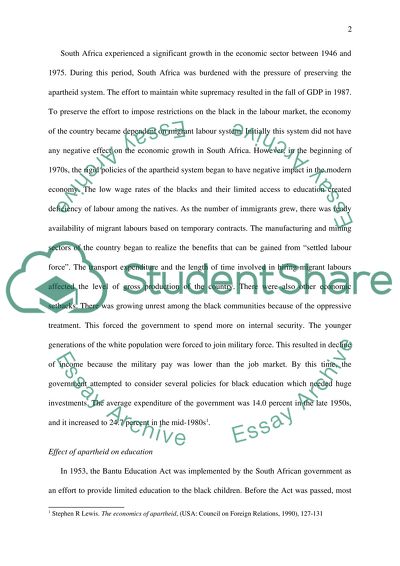Cite this document
(“Apartheid is South Africa Research Paper Example | Topics and Well Written Essays - 1750 words”, n.d.)
Retrieved from https://studentshare.org/history/1445908-choose-from-given-choices-see-instructions
Retrieved from https://studentshare.org/history/1445908-choose-from-given-choices-see-instructions
(Apartheid Is South Africa Research Paper Example | Topics and Well Written Essays - 1750 Words)
https://studentshare.org/history/1445908-choose-from-given-choices-see-instructions.
https://studentshare.org/history/1445908-choose-from-given-choices-see-instructions.
“Apartheid Is South Africa Research Paper Example | Topics and Well Written Essays - 1750 Words”, n.d. https://studentshare.org/history/1445908-choose-from-given-choices-see-instructions.


